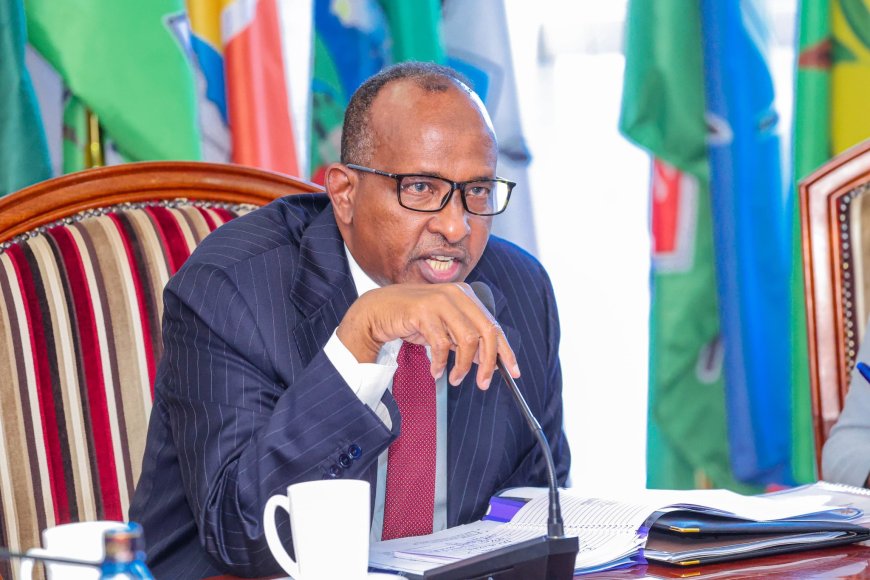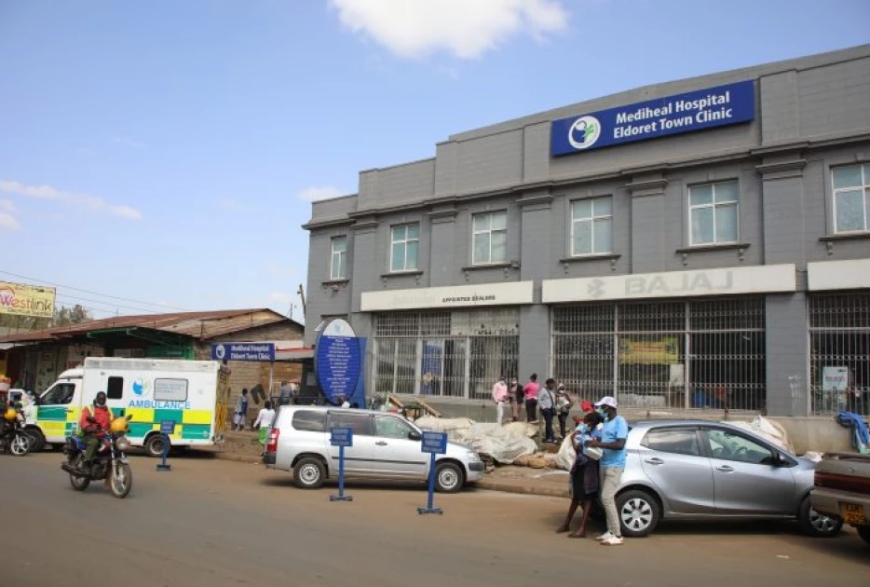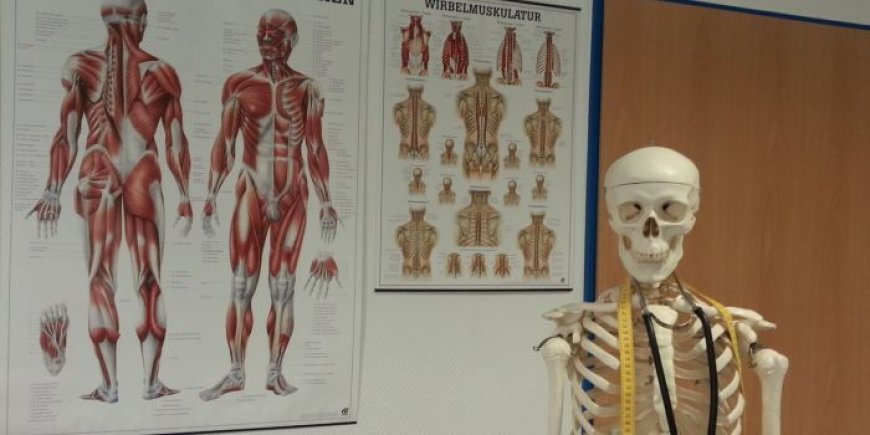CS Duale Uncovers 9 Issues In Kenyan Hospital Dragged In Global Exposé
The investigation exposed significant flaws in the hospital’s kidney transplant program, sparking renewed fears of potential organ trafficking involving foreign nationals.

Following a shocking special investigation by Deutsche Welle (DW), German media ZDF, and Der Spiegel, which placed Kenya at the centre of an international organ trafficking syndicate involving Mediheal Hospital and Fertility Centre in Eldoret, the government, through the Ministry of Health, has released a statement on the matter.
The investigation exposed significant flaws in the hospital’s kidney transplant program, sparking renewed fears of potential organ trafficking involving foreign nationals. These findings followed an in-depth fact-finding mission conducted by a multidisciplinary team appointed by the Ministry of Health, after receiving a warning from the global Transplantation Society.
The warning, as captured in a statement by the Aden Duale-led Ministry sent to newsrooms on Thursday, April 15, saw the society highlight concerns of an organised syndicate that was evading existing regulations in the country with suspicion of organ trafficking. It further mentioned information from Israeli sources indicating that several kidney transplants involving trafficked foreign kidney donors had taken place specifically at Mediheal.
"The Ministry of Health constituted a multidisciplinary team comprising kidney transplant specialists, an ethicist, representatives from the Kenya Blood Transfusion and Transplant Services (KBTTS) Secretariat, the Kenya Medical Practitioners and Dentists Council (KMPDC), the Ministry of Health administration, and academic experts. The team undertook a fact-finding mission from 5th to 8th December 2023.
"The team’s terms of reference included: Verifying concerns raised by the Transplantation Society, Auditing transplant services at the hospital, and Providing actionable recommendations based on their findings," the statement read in part.

File image of the Mediheal Hospital Eldoret Town Clinic. /CITIZEN DIGITAL
Mediheal Hospital & Fertility Centre, Eldoret, is a Level 5 private hospital deemed to have requisite approvals to conduct a kidney transplantation program and has conducted transplant activities for the last five years. It had 372 kidney transplants, with a majority of transplant cases from Kenya, East African Community (Uganda, Ethiopia, Burundi, DRC, Somalia) and a few international cases (Australia, Israel, Japan, USA, UK).
The facility was revealed to have adopted new technologies, as 99 percent of their transplants were conducted laparoscopically, with induction prior to the transplants, and all donations were from living donors and consent to donate was available in all sampled files.
However, the facility lacked sufficient documentation to verify the relationship between donors and recipients. The documents availed indicated that some of the donors came from different nationalities.
"All the Human Leukocyte Antigen (HLA) tests that enable distinction of 'self' and 'non-self' were done in India without the requisite approval of the MOH for shipment of human samples outside the country.
"There were high-risk transplantations, including for a patient with confirmed prostate cancer and extremes of age.
While the investigation did not conclusively prove direct involvement in organ trafficking, it found the claims credible enough to justify a deeper investigation by law enforcement and oversight bodies. The team has since recommended a comprehensive reform of Kenya’s transplant oversight system, urging the creation and implementation of national standards and clinical guidelines to regulate transplant procedures across the country.
“The Ministry of Health to develop a legislative and regulatory framework to safeguard against organ trafficking and transplant tourism. National Standards and Regulatory Frameworks in transplant services will seal legal loopholes that can be exploited to allow for clandestine, unregulated transplants,” noted the Health CS.
“All donor and recipient evaluations to be presented to a multi-disciplinary committee. MDTs need to be operationalised/made functional and the hospital management needs to reconstitute the ethics committee to include interpreters who can clearly communicate with the recipients and donors, a patient advocate and experts not directly involved in the transplantation.”
Duale added: “The audit realised that there was a need to strengthen the donor recruitment process and consent by involving and documenting family member conferences. This will involve documenting a list of family/people talked to and anyone who participates in the transplant process for accountability and transparency. The due diligence and duty of care must be upheld by all health care providers as they administer their services.”
The team also proposed the creation of a centralised registry for all organ transplant recipients and donors, particularly foreign nationals, with verified documentation confirming their relationships. They emphasised the need for a more robust donor consent process, involving families and ensuring proper documentation to promote transparency and accountability.
In response, CS Duale stated that the Ministry of Health has already developed guidelines for transplant services along with a draft policy governing the use of blood, cells, tissues, organs, and other human substances, adding that the ministry plans to carry out a follow-up audit at Mediheal Hospital to assess compliance and will also initiate nationwide audits of all seven transplant facilities in Kenya to enforce consistent standards.
The Exposé In A Nutshell
The investigation revealed that recipients are charged up to $200,000 (Ksh25.9 million) for kidney transplants, with the hospital allegedly being one of the key sites where these procedures take place. The exposé, which traced a trail from the Kenyan hospital to a shadowy agency recruiting organ recipients from Germany, exposed a disturbing exploitation cycle—the young, driven by financial desperation, and the elderly, in urgent need of a life-saving organ.
According to DW’s findings, this international network secures local donors through paid referrals, and in some instances, flies in donors from countries like Azerbaijan, Kazakhstan, and Pakistan.
Although many of these countries have strict laws against organ donation, the ring takes advantage of a legal grey area in Kenya, where no law explicitly criminalises receiving money for donating a kidney, making prosecution on that basis difficult.
In contrast, illegal organ trafficking in Kenya is punishable by up to 10 years in prison and/or a Ksh10 million fine, while trafficking individuals for organ trade can result in 30 years to life imprisonment and/or a Ksh30 million fine.







